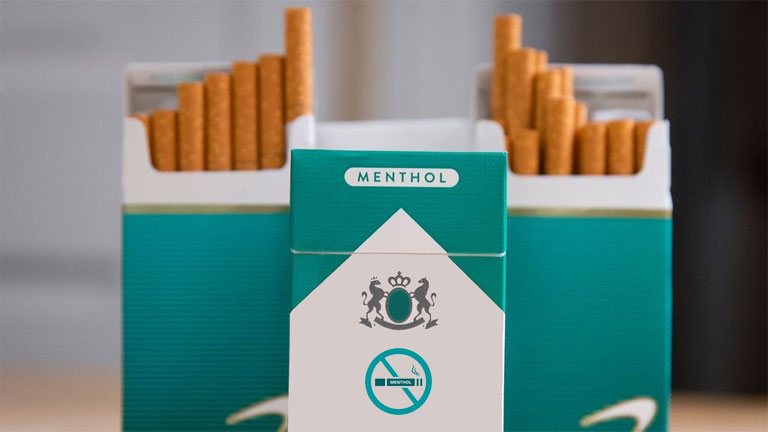
Cigarettes and cigars include menthol, which soothes the throat and softens the harshness of tobacco smoke. It makes smoking easier and harder to quit, especially for kids. Studies show that people stop when flavored tobacco products are banned, and smoking rates decrease. This is particularly true for African Americans.
Public health impact of the ban on menthol
Reduced Risk of Lung Cancer
The evidence is clear: cigarette menthol is linked to increased smoking initiation, greater dependence, and lower quit success. It is especially true for Black smokers, whose health risks are particularly severe. Menthol also makes it more difficult to quit tobacco use, which is why reducing the availability of flavored products is so important for Black communities. A menthol ban has reduced teen smoking, and studies of communities show that restrictions can be implemented without causing severe economic losses for local businesses. There are FDA’s efforts to implement this key policy as soon as possible. The impact of this and other tobacco control measures will save hundreds of thousands of lives while reducing health inequities.
Reduced Risk of Heart Disease
Many young people smoke mentholated cigarettes or other flavored cigars, and those who start with these products are more likely to continue smoking. A ban on mentholated cigarettes could help prevent young people from starting to smoke, improve their quit rates, and reduce smoking-related deaths. In the US, a menthol ban could lead 1.3 million smokers to quit, including more than 200,000 African Americans. This policy would also save healthcare costs by reducing smoking-related disease and death, and it could reduce disparities in health outcomes and healthcare costs across sex and racial groups.
Reduced Risk of Stroke
Tobacco companies often cite fears of severe economic losses in communities that restrict flavored tobacco sales, but studies show that retailers can manage without massive casualties.
If the menthol ban is implemented, it could significantly reduce youth smoking and support smokers’ attempts to quit, especially those who currently smoke menthol cigarettes. These reductions could also reduce CVD morbidity and save lives. In addition, it could address the health disparities caused by cigarette marketing and industry targeting low-income communities of color, women, and LGBTQ+ people.
Reduced Risk of Obesity
Many youth begin smoking with menthol cigarettes, which are particularly addictive. The flavored tobacco ban in California can reduce the number of young people who start smoking and prevent addiction among those who do.
Reduced Risk of Diabetes
The FDA has the jurisdiction to regulate tobacco products under the 2009 Tobacco Control Act, including the prohibition of flavorings with identifying characteristics. A policy prohibiting menthol cigarettes would be expected to reduce smoking and related healthcare costs. Evidence from menthol bans worldwide suggests they can significantly decrease smoking rates and save lives, especially among Black Americans, who experience higher death rates from tobacco-related diseases than other US racial and ethnic groups. A recent microsimulation study estimated that a menthol cigarette ban policy would reduce adverse CVD outcomes and associated healthcare costs in women and non-Latino Black smokers compared to men.
Reduced Risk of Asthma
Researchers have also found that removing mentholated products from the marketplace could lead to more adult smokers quitting cigarettes. It would benefit those whose health is most affected by smoking, including San Francisco’s low-income communities and people of color. In one study, a menthol ban in England reduced youth cigarette smoking by nearly 6%. Other studies have shown that bans minimize cigarette use among teenagers and can help adults quit, particularly those who currently smoke mentholated cigarettes. In a hypothetical ban, e-cigarettes with flavorings other than nicotine (such as fruit or mint) were projected to replace some menthol cigarettes, but not all. However, banning flavored tobacco would likely reduce smoking and save healthcare costs.
Reduced Risk of Chronic Kidney Disease
A menthol ban is good for the health of people everywhere. However it is especially important for young people and communities with disproportionately high smoking rates. Menthol cigarettes and other flavored tobacco products create a cooling sensation, mask the harshness of cigarette smoke, and suppress coughing, making them more appealing to youth smokers and contributing to their addiction. Research also shows that African Americans use mentholated cigarettes at much higher rates than other groups, contributing to health inequities. The scientific evidence is clear: Menthol and other flavored tobacco products cause the same harm as non-flavored cigarettes. That’s why Truth Initiative supports banning menthol cigarettes and other flavored tobacco.
Reduced Risk of Stroke
When menthol cigarettes were banned in San Francisco, fewer young adults smoked or used vaping products, and smokers who remained switched to non-flavored brands. It led to a drop in smoking-related deaths and saved healthcare costs, according to one small 2020 study. A menthol ban also addresses the health disparities created by decades of tobacco industry menthol marketing, which disproportionately targeted Black smokers. During public meetings of the Tobacco Products Scientific Advisory Committee (TPSAC) that considered banning flavored tobacco, proponents were more likely to invoke African American smokers’ disproportionate menthol use than antiban advocates who used discrimination arguments, such as claims that banning menthol would hurt businesses or lead to a black market.




